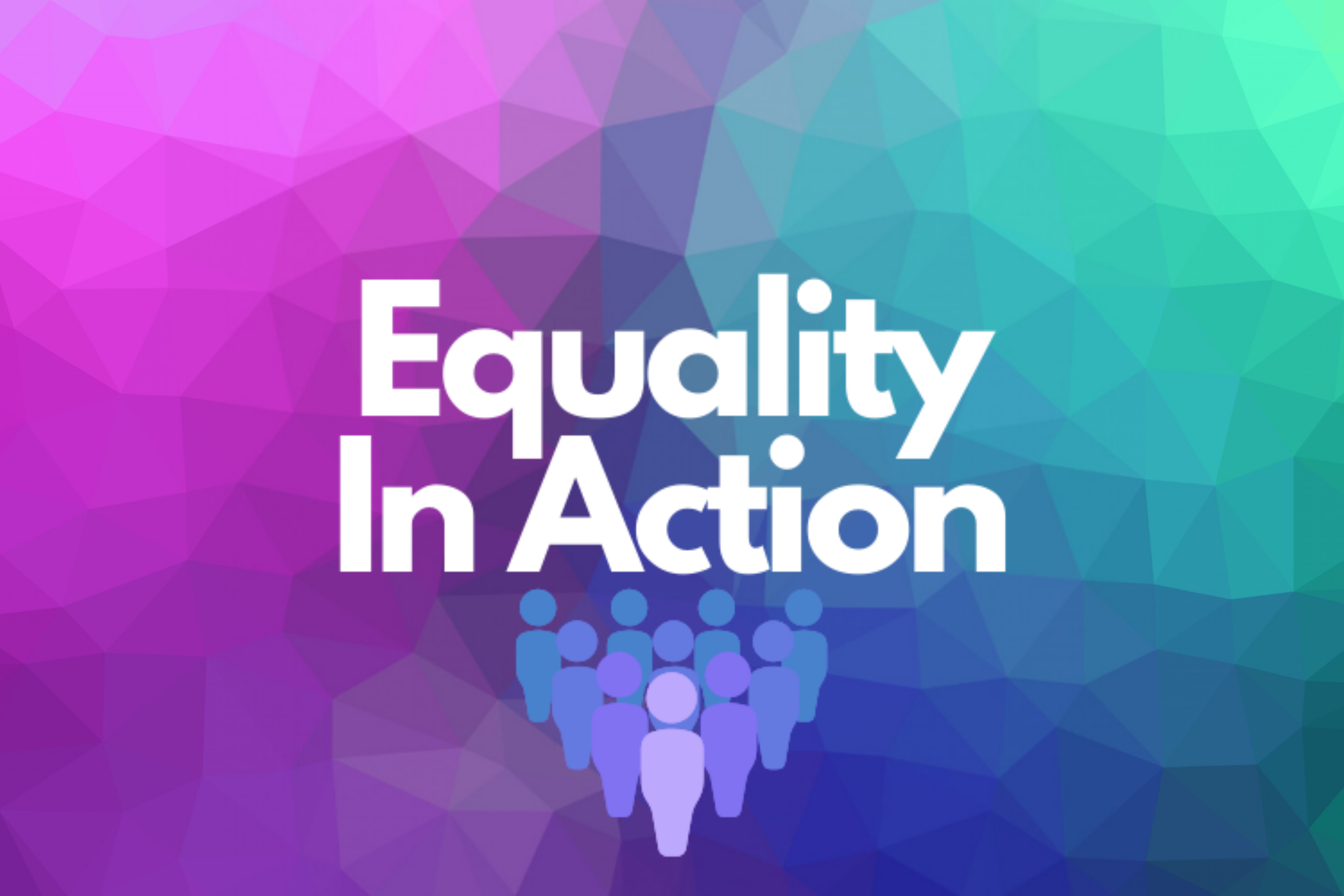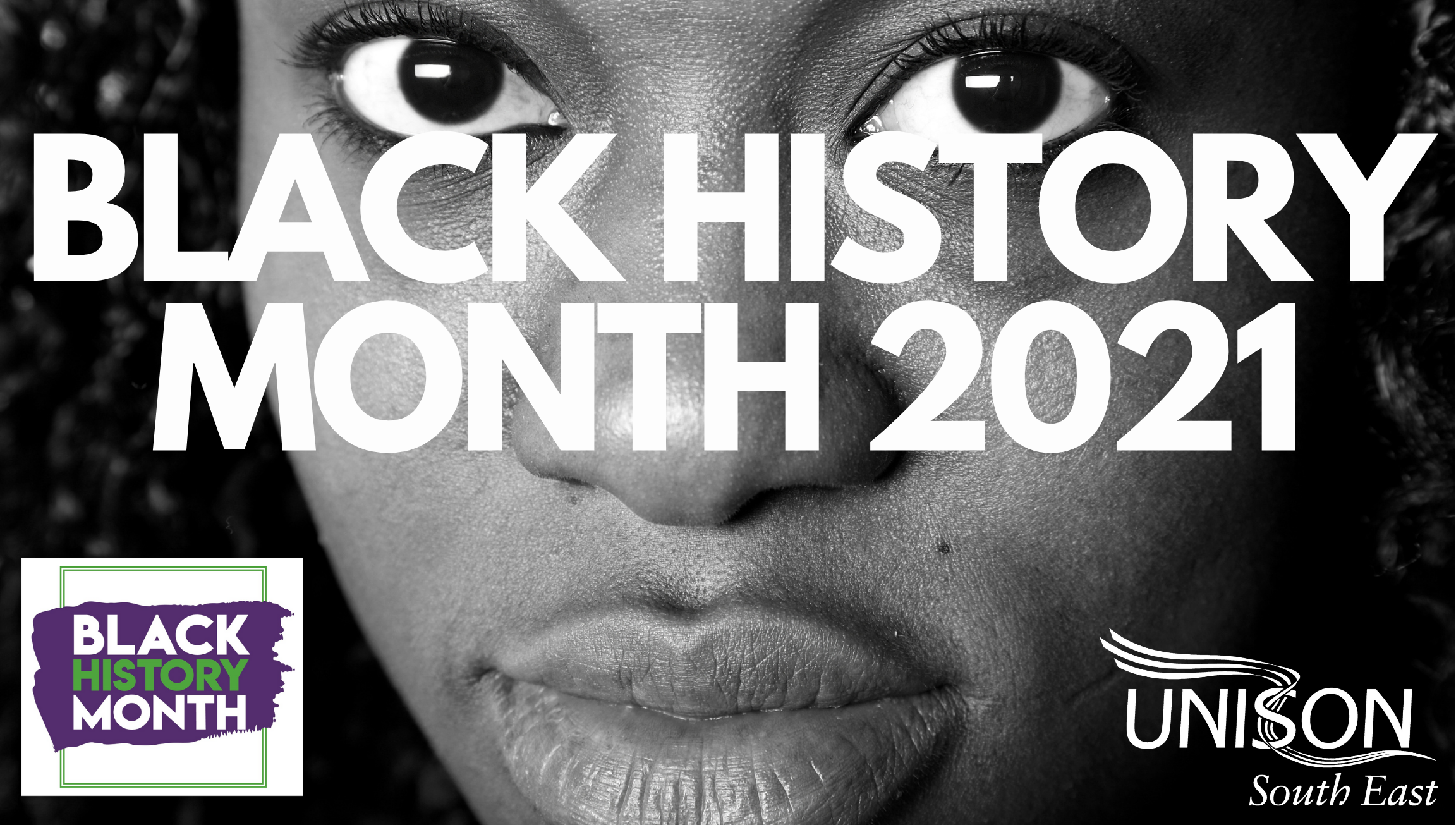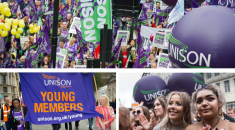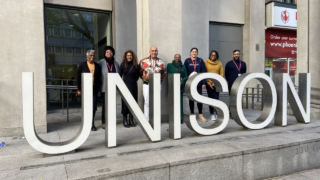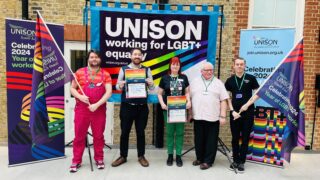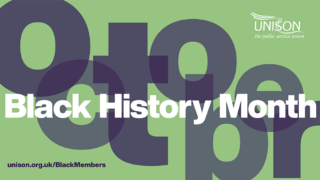As a result of COVID-19, many conferences and meetings have had to be cancelled. With this in mind, UNISON South East organised a series of online sessions in place of the usual regional Equality Conference–online and live.
The Conference was opened by Regional Manager and Head of Equality, Jo Galloway. “This year has been like no other. Public services have been more important than ever before and UNISON members are on the frontline-from NHS workers, to those working from home and to those who are keeping our services running –looking after children, the elderly and the vulnerable,” she said.
“The pandemic has exposed historic and continuing inequalities and brought them into a sharp focus, creating an urgent and pressing need to address them.”
“The purpose of this year’s Equality Conference is to explore and understand these inequalities –many pre-existing –and how they have been exacerbated by the pandemic.”
Vicki Gibbs, Area Organiser in the Education and Equalities Team, delivered the first session ‘The Impact of the Pandemic on Working Parents’. This session examined the impact on members who have struggled to balance their conflicting responsibilities and how UNISON can help.
The workshop sparked an engaging conversation about the impact of working from home with children and the toll it has had on mental health and progression in the workplace. Interestingly, a government report last year found that almost a third of women in the UK with a child aged 14 or under had needed to cut their working hours because of childcare issues. For men it was just one in 10.
The next session of the day was a Round Table discussion around what has changed over the past year and how we can learn from the adaptations we’ve had to make. The Conference welcomed guest speaker Christina McAnea, UNISON General Secretary, to open the discussion.
Christina started her speech by expressing her gratitude to members for their ongoing work throughout the pandemic. “We know that the majority of UNISON members have continued to work during the pandemic,” she said.
“Going into their workplaces and doing the jobs they do, many of which are public-facing and client-facing jobs as health or care workers with direct contact.”
“There have been so many people working from home keeping essential services and systems going, keeping the fabric of society on the rails, and branch activists have not only been having to deal with their own jobs but supporting our members too.”
Attendees then went into groups to discuss the key questions of the session; ‘What have you learned from the past year? What have been the changes in your working life? Is there anything you would like to take forward once the restrictions are removed? What would you like to change?’. A poignant take away from the discussions was how the line between work and home have become so blurred. Many raised how employers were unwilling to provide reasonable adjustments to those working from home and how digital skills posed a particular barrier for members working remotely. Furthermore, the cost of heating and additional expenses has caused a financial burden for many of our members–with little to no support from their employer.
Despite all of these challenges, attendees agreed that it highlights how public service workers go above and beyond. Many members articulated how beneficial working from home has been for them. They’ve had more time to work and focus now that the commute has been taken out of their day, as well as being able to spend more time with family and pets. Going forward, members would like to see ‘hybrid’ working –a balance between office and home working.
UNISON encourages branches to negotiate a homeworking policy which balances the needs of the business, but one which considers the circumstances of the employee (especially if they are disabled or have caring responsibilities).You can find out more by clicking here.
Vicki Gibbs then delivered the first afternoon session ‘Disabled Members Working from Home and Reasonable Adjustments’. This session investigated to what extent the Equality Act protects disabled members who are now working from home and what UNISON can do to support them.
It was discussed how for many disabled workers, working from home has meant they have been more productive. The ability to work flexibly, take short breaks to manage their health issues and easier toilet access were some of the reasons given by disabled members for working more productively and improving their well being by working from home.
In addition, it was highlighted UNISON seeks to negotiate;
- workplace policies that make clear that shielding workers should be asked to return to workplaces before they have received both doses of the vaccine
- The use of furlough for shielding workers and those who live with people who are shielding
- Risk assessments conducted on an individual basis to account for health conditions, which make relevant adaptions to work duties to reduce transmission risk
- That Covid-19 safety measures remain in place regardless of workers’ vaccination status, including social distancing and ventilation control
- That workers mental, as well as physical health is considered when conducting risk assessments around working from home and/or returning to work.
The final session for the day was a panel event focussing on Poverty, Inequality and the Pandemic. The Conference welcomed Peter Kyle, MP for Hove & Portslade, Gloria Mills, Head of Equality in UNISON and Josie Irwin, National Women’s Officer for UNISON.
The discussion was chaired by Jo Galloway-each of the Panellists were given time to firstly answer the question ‘To what extent has Covid-19 exposed and increased pre-existing inequalities for disadvantaged groups?’.
Peter Kyle spoke about how incidents of domestic abuse have skyrocketed; in the first lockdown one in five crimes reported were linked to domestic abuse. This disproportionately impacts both women, as well as members of the LGBT+ community –who are also more likely to face social exclusion, isolation, and mental health issues. Peter Kyle was instrumental in the introduction of the 2019 Domestic Abuse Bill which widened the understanding of what constitutes abuse, including coercion.
The panellists also discussed that in addition to facing increased domestic violence, for women, the Gender Pay Gap has been set back by potentially up to 30 years, with one report stating that women in their mid-30s will never know equal pay in their working lives.
Peter, Gloria and Josie all expressed their anger over the government’s failure to address the inequalities facing Black communities –which was brought into even sharper focus by their lacklustre reaction to the Black Lives Matter protests and delayed publishing of the PHE report to the impact of Covid-19 on Black Communities. They also failed to implement changes identified in their own report ahead of the second wave.
The Panel Event invoked such engaging discussions that unfortunately we had to defer two questions to an email response. “What are the panellist’s views around the report from the Commission on Race and Ethnic Disparity lead by Tony Sewell. Comments were made that the UK should be seen as an exemplar of race equality.”
The response from our panel is as follows; “The Sewell report conclusions were very disappointing. The report questioned the existence of institutional and structural racism, but we’ve seen the effects of this on Black people in the pandemic. Many of our Black members are in low paid jobs across public services doing vital work on the front line but this also exposes them to health and safety hazards and we know many members were very worried that their employers were not carrying out individual risk assessments as they should have at the height of Covid-19. UNISON will continue to fight for fairness and against racism in all its forms.”
“Given that COVID has highlighted the inequalities facing Black people in the UK, does the panel have any ideas how we stop the very high levels of exclusions from schools of Black young people which eventually leads to them ending up in the criminal justice system?”
The panel responded; “We should be deeply concerned about the exclusion of Black pupils from schools. This is not a new issue. Excluding a child can make them vulnerable to exploitation and can diminish their life chances. Schools say they are working very hard to ensure inclusivity, but fine words are easy. We need to look at where there are low exclusions and learn what works and get on and do it –practical action rather than endlessly going through the stats.” Josie added “It was an issue when I was a councillor 20 years ago and seems to be getting worse not better.”
This year’s Equality Conference invoked valuable conversations about the important issues facing our members right now. What’s clear is that whilst inequality has been exacerbated by the pandemic, it’s still centred around areas that UNISON and the Labour Party were already campaigning on, already viewed as important and has given us more of an impetus to keep up our campaigning and organising for real change.
We intend to use the discussions from the Conference to drive further organising campaigns for change.
The conference also welcomed the launch of the NEW UNISON South East Equality Calendar. The new and innovative UNISON South East interactive Equality Calendar will be useful for you in knowing when equality events and training which interest you are going on. The calendar will be continually updated throughout the year as more events and training opportunities are added, so please bookmark and check this page regularly to find out what’s going on. We hope you will be able to use relevant dates / weeks and months for organising and recruitment events in your workplace and in your branch, as well as spark ideas for different campaigns you can get involved in.

